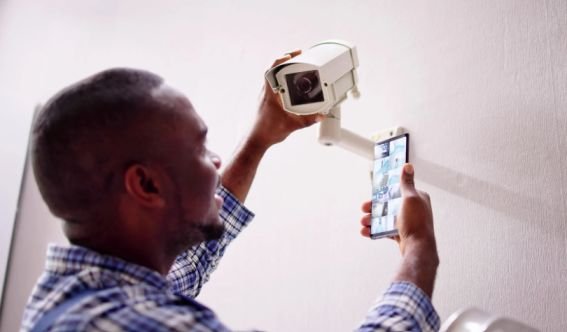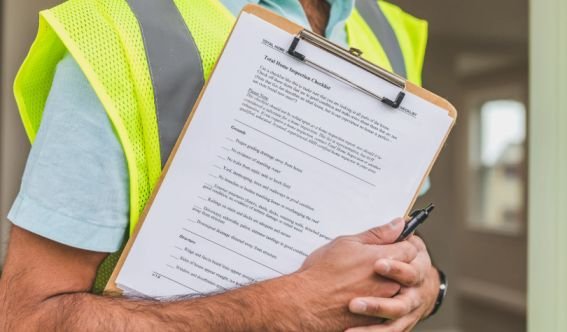
Creating a safe home environment is essential to protecting your loved ones from unexpected accidents. In the wake of recent events, such as the 2025 catastrophic wildfires in California, prioritizing home safety measures has become even more imperative. This comprehensive guide will help your family’s well-being by offering detailed safety tips home strategies. Read on to discover tips that are not only informative but also helpful. But it still resonates with you. Create a safe place for your loved ones.
Safety Tips Before Leaving Home

The risk can be reduced dramatically with a quick safety check before leaving the house. The most effective safety suggestions are the secrets for peace of mind.
- Secure All Doors and Windows: Check again that all entrances are locked. Install the Dead Bolt lock to increase security. Consider genius lock for remote access
- Turn Off Electrical Appliances: removing unnecessary devices such as iron, coffee maker, And heating in the area To eliminate the dangers of fire.
- Adjust Thermostats and Alarms: set the temperature controller to save energy and enable the anti-theft system in the house.
- Ensure Adequate Lighting: Installing a light sensor to detect your home to stop the intruders that may occur while not.
- Inform Trusted Neighbors: share your travel plans with reliable and ask them to keep an eye on your property.
Security Tips for Home

Safety starts with safety. Here are the most important ways to protect your home from theft and break-ins:
- Install a Comprehensive Security System: Opt for a state-of-the-art system with cameras, alarms, and real-time notifications. Wireless systems are highly effective in integrating mobile apps.
- Upgrade Outdoor Lighting: A Bright Outside With a Displeasure Use solar-powered lights to be environmentally friendly.
- Trim Bushes and Shrubs: The evergreens in overmea can provide cover for intruders. Maintain clear visibility around windows and doors.
- Reinforce Entry Points: Use a metal or solid wood door and reinforce it with steel bars for added security.
Mark Valuables: Use invisible engraving tools or ink to mark valuables, making them traceable in case they are stolen.
Learn more about Safety Tips Before Leaving Home.
Home Safety Tips for Older Adults

Elderly people are especially at risk for accidents at home. Use these provided tips to ensure their safety:
- Eliminate Tripping Hazards: Keep the carpet away from uncertain pedestrians and secure the carpet with a non-slip backing.
- Install Grab Bars: Install grab bars in bathrooms near toilets and showers to prevent falls.
- Upgrade Lighting: Ensure adequate lighting, especially on stairs, hallways, and entryways. Motion-activated lighting is ideal.
- Provide Emergency Alert Systems: Equip seniors with wearable devices to call for immediate help during emergencies.
- Regularly Inspect Smoke Alarms: Smoke and carbon monoxide detectors work well to alert you to a fire or gas leak.
5 Safety Rules for Every Household

These universal safety rules are used in every house and can prevent many types of accidents:
- Never Overload Electrical Outlets: too many electric receptors can cause short circuits and fire. Use a surge protection machine
- Store Chemicals Safely: Collect cleaning solutions and all dangerous materials from the hands of children and pets.
- Maintain Fire Extinguishers: Place the fire extinguishers in access areas such as kitchens and garages. And make sure everyone knows how to use
- Test Smoke Detectors Monthly: the active detector is a life assistant. Change battery regularly
- Develop an Emergency Plan: fire extinguisher and have an appointment location outside the house.
Home Safety Tips for Winter

Winter brings unique challenges that need special care:
- Prevent Heating Hazards: Collecting at least three feet of fire from the space heater and not leaving without anyone taking care.
- Inspect Chimneys and Fireplaces: Clean the chimney regularly to prevent the accumulation of Creosote and check the appropriate ventilation.
- Protect Pipes: protect the pipe that is touched to prevent freezing and exploding in cold weather.
- Stock Emergency Supplies: Collect blankets, flashlights, batteries, and rotten food for energy stops.
- Install Carbon Monoxide Detectors: A CO detector is important to prevent poisoning from using too much heater.
Safety Topics Home

Here are additional safety topics to consider:
- Fire Safety Tips for the Home: Keep matches and lighters out of children’s reach, and never leave candles unattended.
- Child Safety Measures: Use childproof locks on cabinets and secure furniture to walls to prevent tipping accidents.
Wildfire Readiness: Post-wildfire cleanup involves removing ash and soot safely. Wear protective gear to minimize health risks.
Learn more about post-wildfire cleanup at trusted resources like the American Red Cross.
Conclusion: Prioritize Safety, Protect Your Loved Ones
Being aware and planning is the first step in a mutual effort to keep the house safe. The implementation of these good suggestions will help create a safe environment where your family can grow unnecessarily. Review these safety precautions regularly. And modify as necessary to support the changing situations.
Explore essential Yard Work Safety Tips.
FAQs
What are the most important safety tips for home?
Make sure to install secure window and door security systems and keep them away from trip hazards. Make sure your carbon monoxide and hood are working.
How can I ensure home safety for older adults?
Eliminate tripping hazards, provide emergency alert systems, and install grab bars in bathrooms. Regularly test smoke alarms and upgrade lighting for better visibility.
What are 5 safety rules for every household?
- Never overload electrical outlets.
- Store chemicals safely.
- Maintain fire extinguishers.
- Test smoke detectors monthly.
- Develop an emergency evacuation plan.
Why are carbon monoxide detectors important?
Carbon monoxide is a colorless, odorless gas that can be fatal. An informer will alert you to dangerous levels and provide critical time for detoxification and recovery.
How do I prepare for winter home safety?
Pipe protection, chimney cleaning, and have emergency equipment ready Make sure space heaters are used safely. and install a carbon monoxide detector.
By integrating these strategies into your daily life. You will create a home that is not only safe but also safe. But it is also a sacred place for your loved ones.



